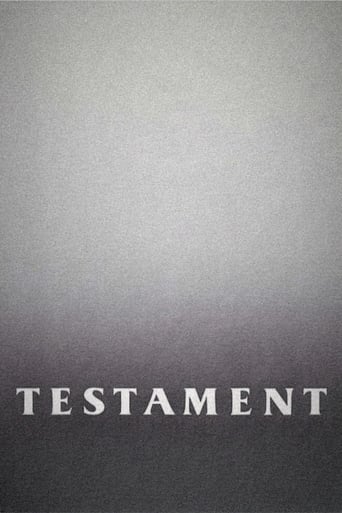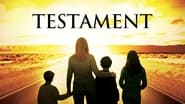Lele
I have a daughter the same age of Mari Liz (Roxana Zal) and I can't even imagine what I'd do if something bad were to happen to her. The scene where the young girl asks the mother what is making love is one of saddest scene I ever saw. I was 25 when the movie was released and I perfectly knew that my town, like hundred of other Western towns were possible targets. I was born when Cold War was very cold and the fear for WW II was still in the air. And actual bombs were still in our ground. But IMHO in this movie nuclear war is a metaphor. Almost nothing related to the bombing is really seen on the screen, but a blinding light for some seconds. No sound, nothing. This movie is far away from "The Day After": this film is hopeless.There is no after! People die, even if they do it in a gentle way. The subject of the movie is what does people leave after dying. What people lose dying.Anyway I think I had killed myself much earlier, after the death of the little kid: I would not be able to resist as did the protagonist of the film
Scott LeBrun
"Testament" is a lovely little film that stands out among other productions of the time that dealt with the after effects of nuclear war. What it stresses more than anything is the *human* element: the toll taken on peoples' lives, the loved ones that they're forced to watch pass away before their eyes, and the desperation, anger, frustration, and inhumanity that are experienced. The story (authored by Carol Amen, and written for the screen by John Sacret Young) personalizes things by concentrating on a particular family, the Wetherlys, and how the matriarch, Carol (Jane Alexander) struggles to be strong for the sake of her children, how she so often manages to say just the right thing to them, and the ways that she shows compassion. Instead of showing us lots of spectacle, devastation, and going into the politics of the situation, Young and the director, Lynne Littman, sensitively handle the whole thing and give us characters that are relatable and sympathetic.The Wetherlys are among those in a tight knit small community that must face the reality of nuclear explosions on the continental U.S. and the fallout that slowly kills many of them. And they're very much an ordinary, loving family leading regular lives. We see Carol directing a school play, the patriarch,Tom (William Devane) interacting with his son Brad (Rossie Harris), the daughter Mary Liz (Roxana Zal) practicing her piano, etc. Together with youngest child Scottie (Lukas Haas, in his film debut), they find their lives forever changed when the unthinkable happens.The cast is wonderful all the way down the line. Alexander offers a rock solid presence as a warm, caring mother doing her best to carry on; she gives the film a solid foundation. Familiar faces in smaller roles include Lilia Skala as Fania, Leon Ames and Lurene Tuttle as the Abharts, Rebecca De Mornay and Kevin Costner as the Pitkins, and Mako as service station proprietor Mike.Now, "Testament" isn't always subtle about the way that it tugs at the heartstrings, but it's still powerfully affecting and impossible to forget. It doesn't offer any false hope and is right up front about the harsh realities that its characters must face...right to the end.Well worth a viewing overall, and an interesting contrast to telefilms like 'The Day After' and 'Threads'.Eight out of 10.
TheUnknown837-1
"Testament," a bold and occasionally brilliant film about the consequences of a nuclear attack, really does have the feel and mindset of a memoir. More specifically, a memoir written by somebody who might or might not have survived a tragic event they never fully understood. One of the movie's surefire touches of genius lies in the fact that its narrating protagonist, a commonplace small-town mother very well-played by Jane Alexander, never learns who triggered the nuclear war that wrecks life as she knows it. In spite of what the movie posters would have us believe, we never see the actual attack—only a bright series of flashes near the beginning. Afterwards, we only observe the after-effects: the radiation sickness, the townspeople turned on one another, the cemeteries and backyards filling up with coffins. In many of these moments, "Testament" has some great power.However, as a memoir-mindset, it also suffers from a patchy narrative. If we want to consider it like a memoir, then it was one in which the writer only jotted down their experiences in the barest of detail and only once every few weeks. I am completely appreciative that the makers of the film never spoiled their intentions (they never tell us who is responsible for the attack) but I wanted more of the consequences. I wanted to get to know the protagonist better, I wanted to understand her relationship with her three children, I wanted more of a sense of loneliness when her missing husband never returns home. There are a number of characters who succumb to radiation poisoning (we are told several hundred) but only one death registers an emotional impact. The others certainly attempt to make us feel, but I could not stir any empathy, as I felt I had not come to know these people as human beings.Running down the casualty lists in "Testament" is like scrolling through a list of casualties from a tragic event long before you were born: I certainly felt sorry for what happened to them, but there was no particular level of sympathy from one name to the other. Maybe that says something about me as a human being, but I never really had the impression that I could imagine being in the middle of it myself. In spite of Miss Alexander's wonderful performance, there is not much of a character there. At the end of "Testament," I wanted to know about her struggles and get involved; I wanted to feel heartbroken that she waited so long and so futilely for a loved one to finally return home. Even an attempted suicide scene, something I would expect of a situation like in this movie, could not bring me to care much.To the movie's credit, it is very well-produced. Lynne Littman, the director, has a solid instinct for placing her camera and instructing actors how to move, where to stand, and how to perform. She also has a very subtle, unpretentious style: something absolutely necessary given the movie's intentions. And the cinematography by Steven Poster (artfully drab with a washed-out lens trick) is absolutely lovely to behold. It just goes to show that the camera does not need to be flourished with strobes and bright colors for a scene to be beautiful. And there are some scenes of great power: an opening moment where a father and son have a bike race, an extremely touching scene where a mother and her daughter, both of whom expect to die soon, have an honest and open conversation about sex. And the movie's occasional usage of Super 8 home-video footage is a great touch. The music by James Horner is very good (it has a haunting quality reminiscent of the soundtrack from "Blade Runner") but is not heard nearly enough. There are a number of very fine moments in which some subtle, in-the-background notes would be really appreciative, to bring the whole sequence full circle. That just might be the movie's problem: "Testament" never seems to come all the way around with its intentions. Despite its artistically restrained mindset and no matter how much I would like to have been moved and had my thoughts provoked by it, "Testament" did not register much of an emotional impact for me.
bruinsj
Firstly, I agree wholeheartedly with every previous glowing review of this film. So, I won't gush regarding the obvious greatness of Testament.However, one thing really irked me, well actually two things...First; why didn't the mother get away...people are leaving, driving away to areas beyond the radiation & the nuclear fallout, I recall Northern Canada being mentioned, what have you. So, very quickly the effects of the radiation become apparent on others, and soon after they begin to affect her own family; her son dies. So, why on earth does she stay and watch everyone die? I enjoyed the film very much, but I felt myself being angry the entire time with the mother....like your watching your children die, clearly the radiation levels where you are are unacceptable, but you stay; why??? I mean how could a mother do that? It's not like they didn't have a car or gasoline, or that there was any explanation given within the confines of the film as to why she couldn't have simply driven away to escape the fallout, just did not make any sense to me. Secondly, what happened?, weeks pass...where is the president, where is the military, what cities where hit, by whom?, even if the worst case scenario, there's always some info that gets out, so i also suffered from a complete lack of understanding regarding their situation, simply put...What happened?...throw me a small bone at least. So, my two complaints, but for what it was and the story it aimed to tell, it still did a spectacular job indeed.





